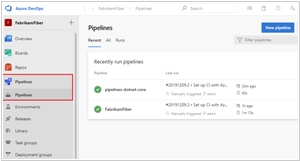Azure DevOps vs Jenkins
July 27, 2023 | Author: Michael Stromann
Azure DevOps and Jenkins are both popular tools used in the software development lifecycle, but they differ significantly in their features and capabilities. Firstly, Azure DevOps is a comprehensive, all-in-one platform offered by Microsoft, while Jenkins is an open-source automation server. Azure DevOps provides a seamless integration of various development tools such as version control, build automation, release management, and project tracking in a single platform. On the other hand, Jenkins is primarily a continuous integration and continuous delivery (CI/CD) tool that requires additional plugins and configurations to achieve similar functionalities to Azure DevOps. This key difference makes Azure DevOps a more straightforward choice for teams looking for an all-encompassing solution, while Jenkins offers more flexibility and customization options for those who prefer a modular approach.
Secondly, the hosting and maintenance models for these tools differ. Azure DevOps is a cloud-based service, meaning Microsoft handles the infrastructure, updates, and scaling, providing a hassle-free experience for users. In contrast, Jenkins requires self-hosting on a server, which demands more effort in terms of installation, maintenance, and scaling as the user's needs grow. This distinction makes Azure DevOps more suitable for teams that prefer a managed and low-maintenance solution, while Jenkins might be preferred by organizations that require greater control over their infrastructure and configurations.
Lastly, Azure DevOps has built-in support for Microsoft technologies, such as .NET, Visual Studio, and Azure Cloud Services. This tight integration streamlines the development process for teams working primarily in the Microsoft ecosystem. Jenkins, being open-source, has a broader range of plugins and integrations with various tools and technologies, making it more versatile across different development environments. Teams with diverse technology stacks may find Jenkins to be a better fit, while those focused on Microsoft technologies might opt for the seamless experience offered by Azure DevOps.
See also: Top 10 Source Code Management tools
Secondly, the hosting and maintenance models for these tools differ. Azure DevOps is a cloud-based service, meaning Microsoft handles the infrastructure, updates, and scaling, providing a hassle-free experience for users. In contrast, Jenkins requires self-hosting on a server, which demands more effort in terms of installation, maintenance, and scaling as the user's needs grow. This distinction makes Azure DevOps more suitable for teams that prefer a managed and low-maintenance solution, while Jenkins might be preferred by organizations that require greater control over their infrastructure and configurations.
Lastly, Azure DevOps has built-in support for Microsoft technologies, such as .NET, Visual Studio, and Azure Cloud Services. This tight integration streamlines the development process for teams working primarily in the Microsoft ecosystem. Jenkins, being open-source, has a broader range of plugins and integrations with various tools and technologies, making it more versatile across different development environments. Teams with diverse technology stacks may find Jenkins to be a better fit, while those focused on Microsoft technologies might opt for the seamless experience offered by Azure DevOps.
See also: Top 10 Source Code Management tools




